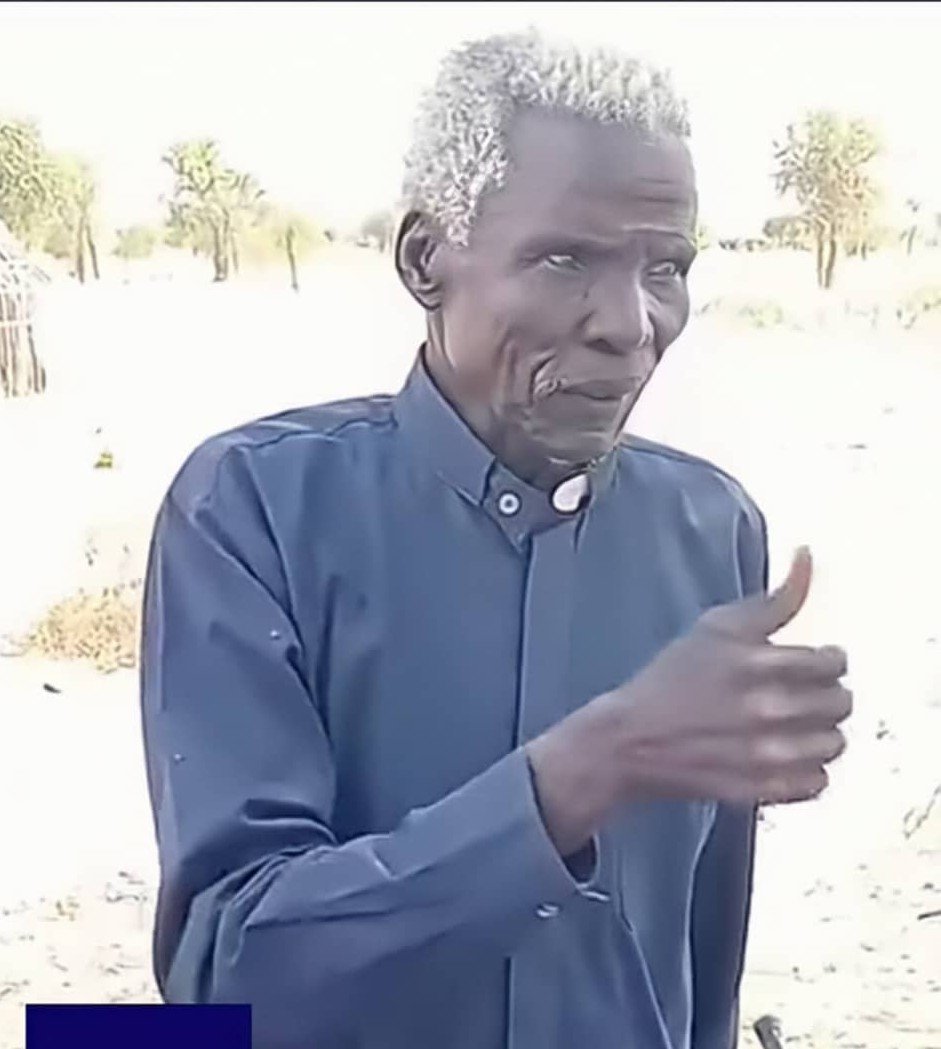By Matik Kueth
In Uror County, Jonglei State, 76-year-old Lony Deng Muot draws crowds of young admirers eager to hear his stories of South Sudan’s long fight for freedom. A veteran of the Anya-nya I and II movement, Muot not only fought in key battles from the 1960s but also lifted soldiers’ spirits with powerful war songs. His legacy, marked by grey hair and deep wisdom, remains a living link to the country’s path to independence.
In an exclusive interview with King Media on Tuesday, Muot narrated how he composed the war songs during the struggle movement to boost the morale of the soldiers.
“I am your father, Lony Deng Muot, from SPLA/M. I was the one who composed SPLM/A war songs during the struggle movement when we were liberating our country from the Khartoum government. If you have ever heard any song in the radio during the struggle movement, it was me who composed that song,” Muot said.
He added, “I joined the military a long time ago. I joined the army when it was still called Anyanya I. After the Addis Ababa peace agreement failed, the late Vincent Kuany Latjor defected from the Khartoum government and formed Anyanya II in Bilpam, Ethiopia. I was with Kuany Latjor. Actually, I don’t remember the years well because I did not study. I only know the years by events. I was part of the brigade Known as Koryom one of Cobra Anyanya one.”
He said they had done their part. They liberated South Sudan from the Khartoum government.
“There’s nothing left undone; we have liberated our country from the Arabs, and we have engaged in countless battles,” he stated.
Muot noted that he had fought the Arabs along the Nile when SLPM/A was still called Anyanya I.
He stressed they were defeated by the Arabs and had to come up with an idea of composing a song to keep soldiers motivated to fight the Arabs.
“I am the one who used to sing Anyanya songs during those days in the bush. I used to sing the songs during parades and whenever the soldiers made military matches to boost their morale when fighting the enemy [Arabs]. That’s where I composed two songs for SPLA in Anya-nya I,” he emphasized.
Muot further said he lost some of his colleagues during the struggle, but he’s proud of their contribution to the country’s liberation.
“I sang in Bonga in the Nasir military training center to motivate soldiers not to give up struggling. In all those wars and in all those places, it’s where I have been. We fought for the country, and some of my colleagues died, and some are still alive. I have a big hand in our country’s independence,” he stressed.
“I am happy that our struggle was not in vain. I am now an old man. I am just sitting among you, living with our government. I am in our country, and I’m in the church as a priest preaching the word of God. If you want to know that am alive, I’m one of the SPLA veteran soldiers that are still alive,” he noted.
One of his songs was meant to encourage the freedom fighters to continue fighting during the struggle movement.
The song goes like this: “Nasir ba waŋ Kalashnikov cam dɔwdɛ ran, Kalany camdɔwdɛ ran, Maun, kɛ Tha̱a̱m kɛ mac Ti̱ya̱a̱r bɛ däk mä ci̱e̱ŋ cuma̱l kalany camdɔwdɛ ran. De̱c tari̱r i̱ thi̱e̱cɛ wi̱cmuɔn ɛ ŋu naŋ naath dɔɔr? “cakɔ räth Bɔnga, ci̱ gaat duoth baaŋ mä mään, i̱ e̱e̱ lo̱k nɛy duɔl Arabi̱a, kamda ni̱me̱ bi̱ ŋuɛ̱̈ɛ̱̈n ni̱ ruac e̱ wal de̱c tari̱r cäŋ duothni̱ nä nɛrɛw, ci̱ kuära we̱e̱ i̱ ɛ thuɔ̱k latni̱ dɛ̈ɛ̈ŋ, li̱wnä kä bumnä,”
The song literally means, “Nasir will burn down Kalashnikov’s bullet kills human; Kalashnikov’s bullet kills human, Maun [155mm artillery], SAM [Surface-to-air-Missile], gunship, their bullet kills human. Freedom fighters ask the world: what drove people to the bush? “We left for Bonga, children and women left alone with nothing because we don’t want to be marginalized by the Arabs; our war shall continue! Our commander told us that it is the finishing line of Ngundeng’s prophecies, even if only two soldiers will remain, die, and be brave.”
According to him, those were the events he could remember, noting that he’s glad the almighty God stood with them until South Sudan got its independence.
The Anya-nya veteran hero was a fighter in the Anya-nya I and Anya-nya II movements under the late Lt. Gen. Vincent Kuany Latjor.
Latjor was then commissioned as a 2nd lieutenant in the Sudan Armed Forces (SAF) after the Addis Ababa agreement in 1972.
But he rebelled against the Khartoum government in 1975 from Akobo County military barracks, warning of Khartoum’s imminent violation of Addis Ababa agreement.
Latjor led a force from Akobo across the border into the current Gambella region of Ethiopia and carried out military operations against the government.
Muot, a fighter and a song composer spent time with the late Lt. Gen. Latjor, who founded the historical military headquarters, Bilpham.
Latjor was also the first leader to establish the area, which later became the main base for the Sudan People’s Liberation Movement/Army from 183 to 1991 under the late Dr. Jonh Garang de Mabior.



